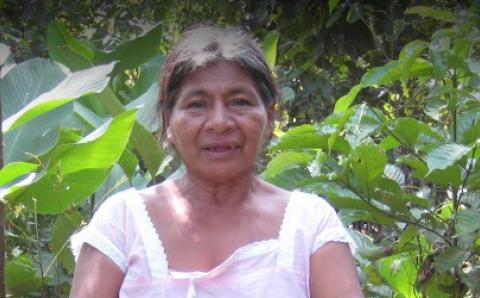Justice
Q Is the “living wage” movement a good thing to support if I want to seek justice?
A Living wage campaigns draw attention to the reality that many people living in poverty are working, but their wages are not adequate to pay for basic living costs. A living wage is defined as the minimum hourly wage that each of two workers in a family of four needs to meet basic needs and participate in society. It is calculated locally and based on actual expenses.
Living wage is not legislated, but it is a helpful basis for dialogue between employers, workers, and the community. It fosters understanding of the situation faced by low-income working families and avoids skepticism about poverty lines and welfare systems. It is different than the minimum wage, which is a corporate calculation of the lowest amount employers can pay workers under the law.
Some employers and municipalities are voluntarily adopting living wage policies. At the local level it can be good business because money for family needs comes back into the local economy.
In scriptural terms, the concept of a living wage respects the dignity of all workers, regardless of what position they hold, and recognizes that they have other human obligations. If one believes that every person is created in the image of God and is called to serve others, a living wage is what a person needs to do that in a modern city. It helps to put a human face on economic policy discussions. And that is a good thing in our current context.
—Kathy Vandergrift teaches public ethics to university students and advocates for the rights of children.
Related Article:
Lopsided Mercy
Faith Formation
Q My brother-in-law’s church just hired a “pastor of faith formation.” (She had served elsewhere as a youth pastor.) That’s a new one for me. What’s a PFF?
A I’m hearing about such newly named positions too, and I’m also noticing that some congregations are setting up their own “faith formation committees” with mandates that expand the ministries of what were formerly church education committees or children’s and youth ministry committees.
I see these developments as positive signs that throughout the denomination we are practicing more seriously something we’ve always preached: lifelong intentional discipleship. As the Heidelberg Catechism declares, “Christ, having redeemed us by his blood, also renews us by his Holy Spirit after his own image, that with our whole life we may show ourselves thankful to God for his benefits” (Q&A 86). One pastor reworded this recently in a sermon: “We are not [just] church members; we are cradle-to-grave whole-life disciples of Jesus.”
Our church systems (which include job descriptions and committee mandates) work best when they intentionally reflect our theology. I’m very grateful and encouraged to see congregations doing such good pioneering work. My prayer is that this pioneering will make space for the Holy Spirit’s wonderful fruit of ministry synergy. When we discern creative ways to coordinate the faith formation blessings of worship, preaching, family devotions, age-focused ministries, and much more, this coordination often provides more opportunities for the Spirit’s transformational power to work.
—Syd Hielema is a professor of religion and theology at Redeemer University College in Ancaster, Ontario.
Outreach
Q I like the idea of a “pub theology” group that gathers for conversation in a public setting. However, our church has a ministry to a number of folks who are in recovery, and a setting that features alcohol doesn’t seem ideal. Do you have any suggestions?
A Glad you asked. It’s important to note who is in our current circles, who we are trying to reach, and how we are attempting to do it. We cannot be too sensitive on this and similar issues. If you know from the start that a bar isn’t an ideal space for the group you envision and the people you hope to connect with, you’re ahead of the game.
I tell people regularly that our gatherings at the pub are not about what we are drinking. The fact that many of us who gather enjoy a good craft brew is a bonus, but we are all there for the connection and the conversation. We could just as easily gather over coffee or iced tea.
I know that some “Theology on Draft”-style groups meet in living rooms, which adds an intimacy to the gathering, but a public setting has the advantage of being more accessible. A friend of mine leads a group called “Coffee and Doubt.” They meet at a local coffee shop and invite conversation on spiritual topics for people who are seeking to work out struggles with their own faith in a safe environment. You could also meet at a library, a bookstore, or a community center. The important thing is to let people know what kind of conversations will take place, convey a spirit of openness and hospitality, and be ready to welcome and love whoever sits at the table! Blessings as you seek to connect with the disconnected.
—Bryan Berghoef is a church planter in Washington, D.C., and is the author of Pub Theology: Beer, Conversation, and God.
Related Article:
How (Not) to Talk About God









